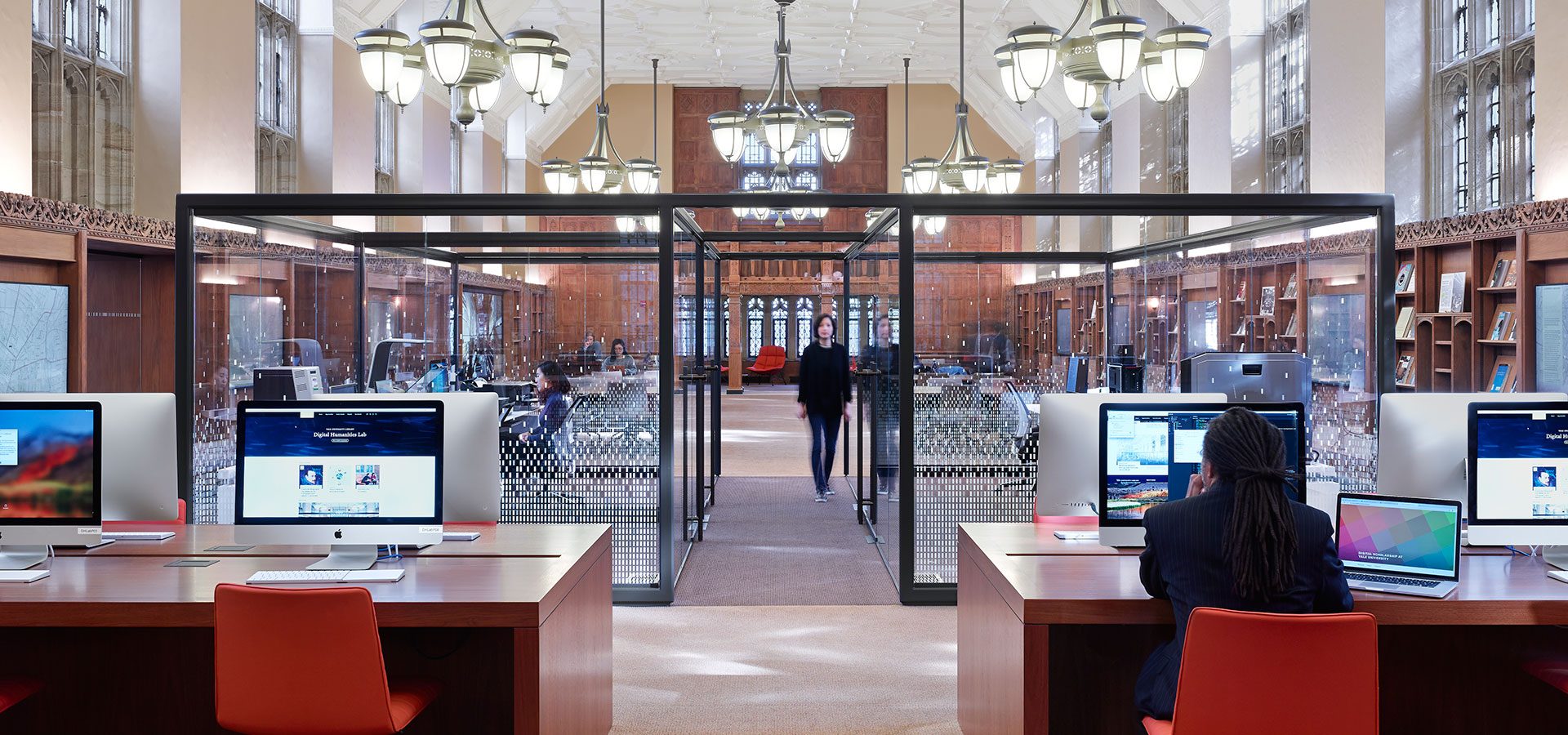
Digital Humanities Lab, Yale University
Apicella + Bunton was engaged to reimagine the Franke Family Reading Room in Yale’s Sterling Memorial Library, transforming the space to house the Digital Humanities Lab. In collaboration with the university’s librarians, staff, and facilities department we created a place for digital scholarship that promotes new methods of research and presentation.
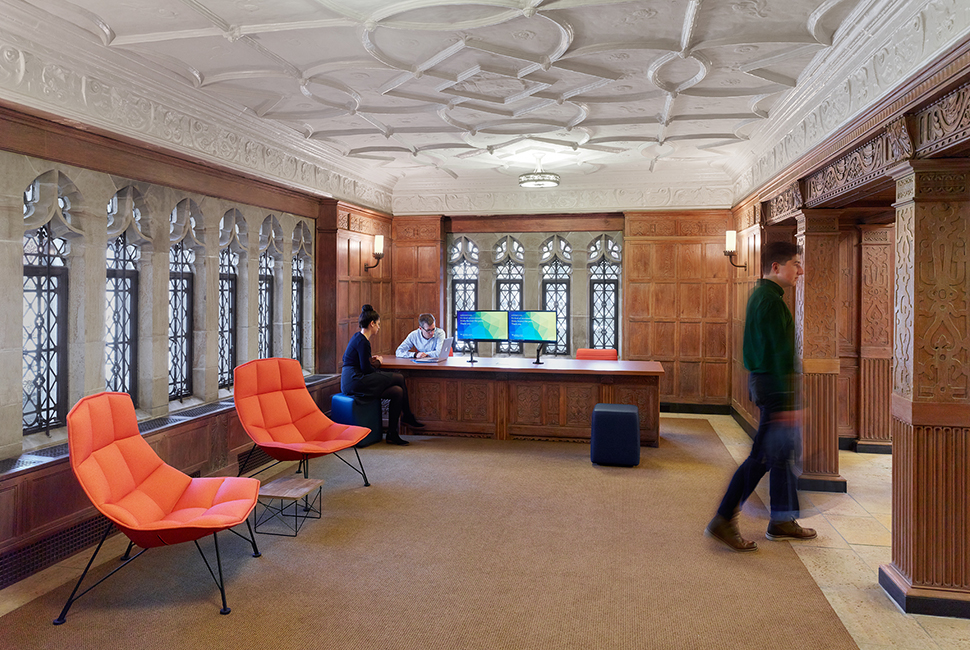
A circulation desk original to the space was located at the center of the entrance portal, dividing the reception area in half. Our team worked with cabinet makers to repurpose its original carved panels into a new accessible help desk. Relocated toward one end of the room, the reception area provides a more generous entry into the DH Lab.
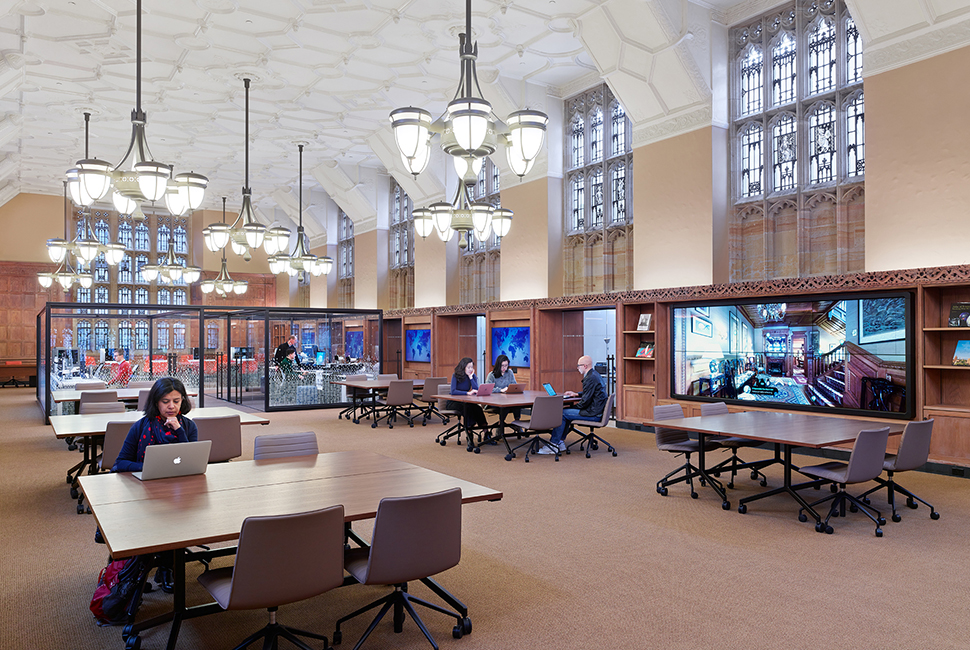
James Gamble Rogers originally designed the space as the Reserve Book Room, with a dedicated two-story book stack flanking the reading room. Flat screen monitors have been creatively incorporated into the existing wood bookshelves and the shelving has been redesigned to display the covers of the DH Lab’s book collection. To preserve the original architectural spirit and detail of the reading room, the existing casework and carved frieze were maintained.
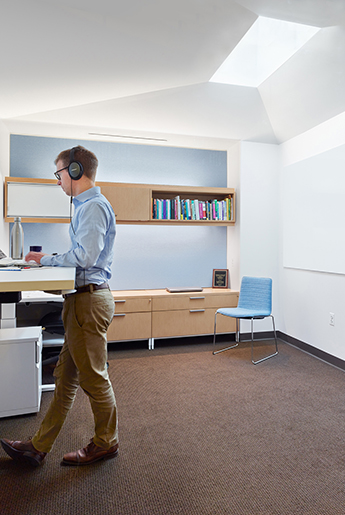
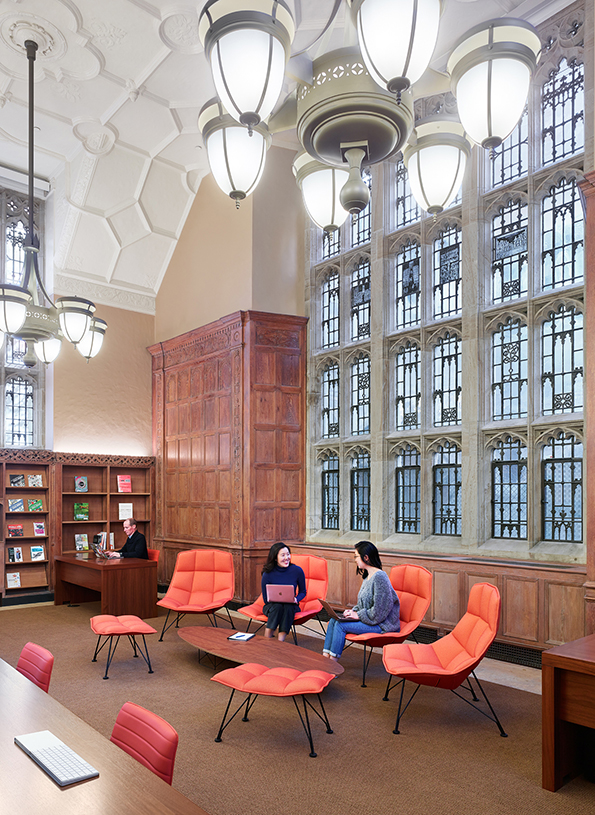
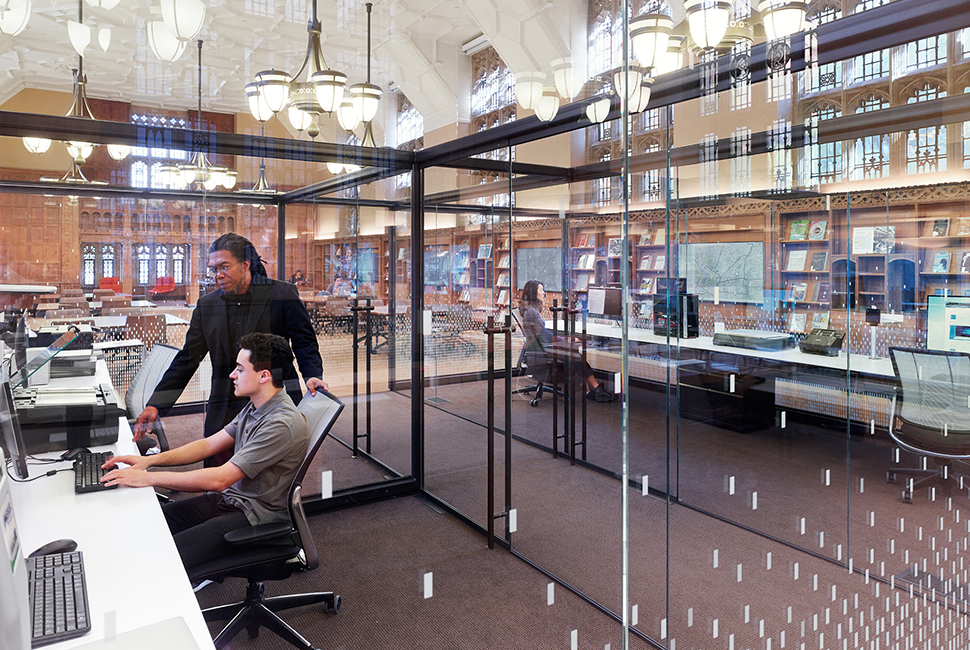
The glass and steel Special Projects Cube was designed as a secure space for four special workstations. Each station features unique equipment geared toward high-performance humanities computing central to the DH Lab’s mission. The design celebrates these research capabilities as a visible architectural feature in the space and allows those working in the Cube to retain a connection to the rest of the library. Our team worked with the staff of the DH Lab to design a custom screen pattern on the glass around the Cube, inspired by punch cards used in early data processing.
2020 Connecticut Building Congress Project Team Award, First Place
Yale News, “New Home for Yale’s Digital Humanities Lab Opens in Sterling Library”
Yale News, “Renovation Creating New Home for Yale Library’s Digital Humanities Lab”
Nota Bene, “News from the Yale Library Summer/Fall 2018”
Yale University Library Digital Humanities Lab
Photographs © Christopher Gardner